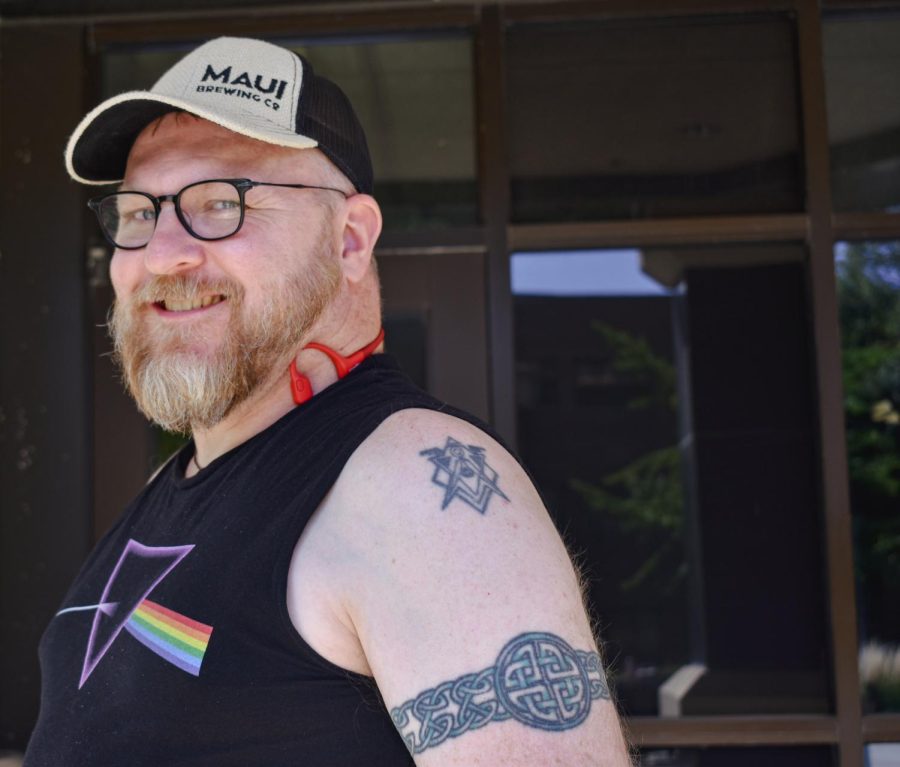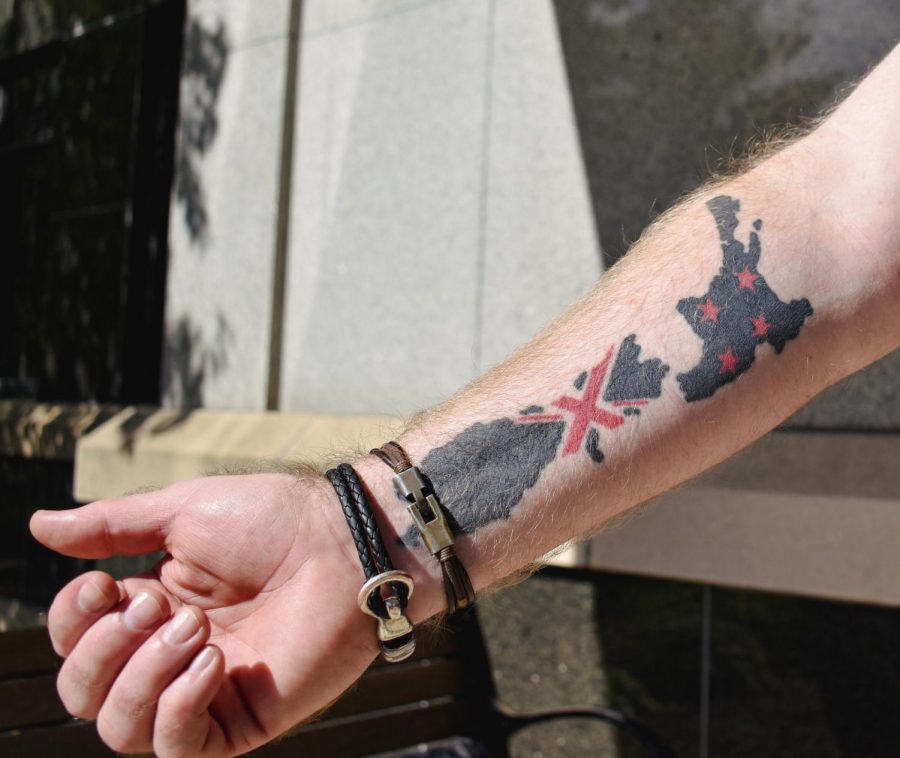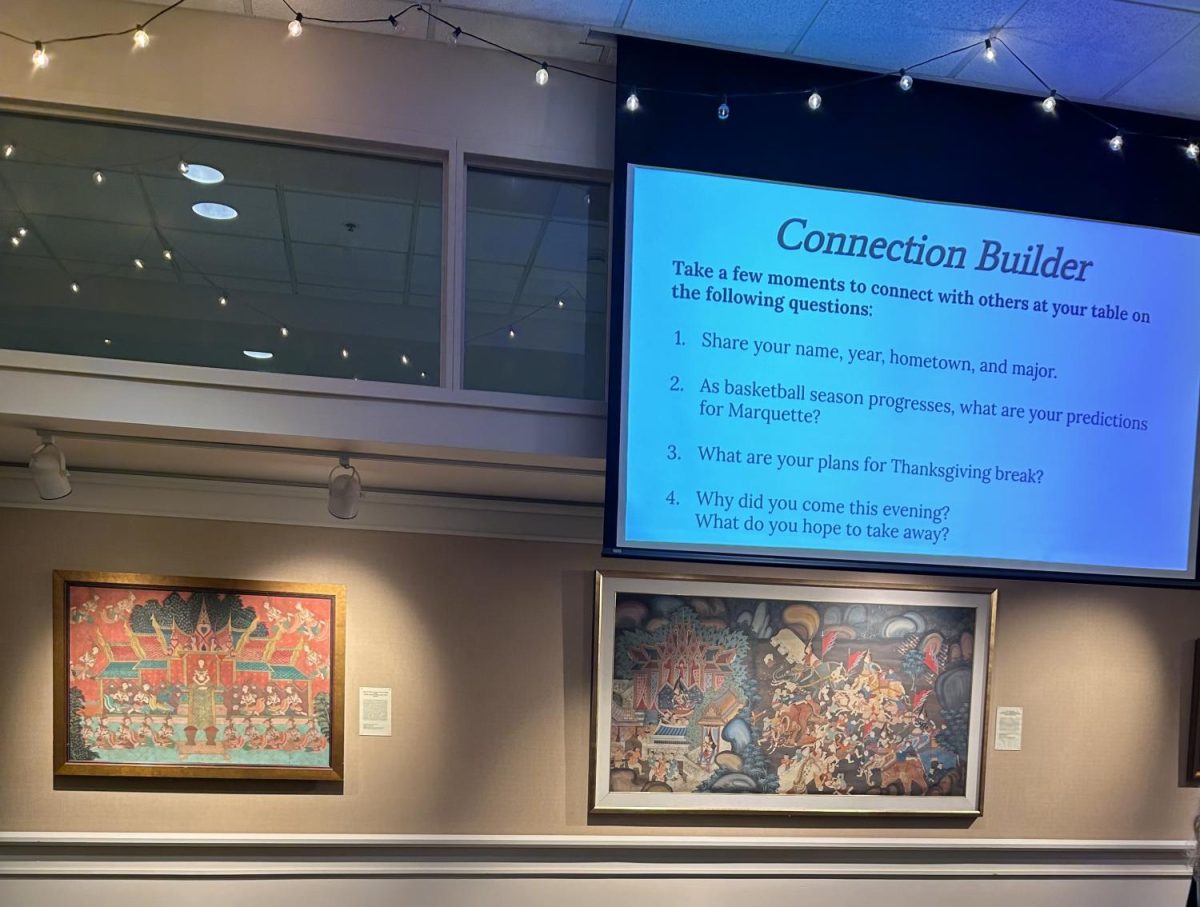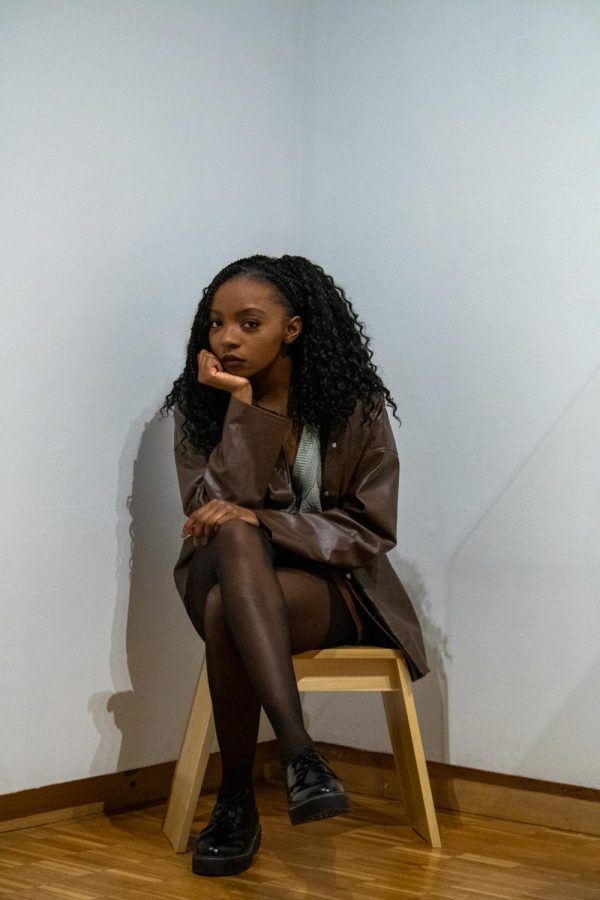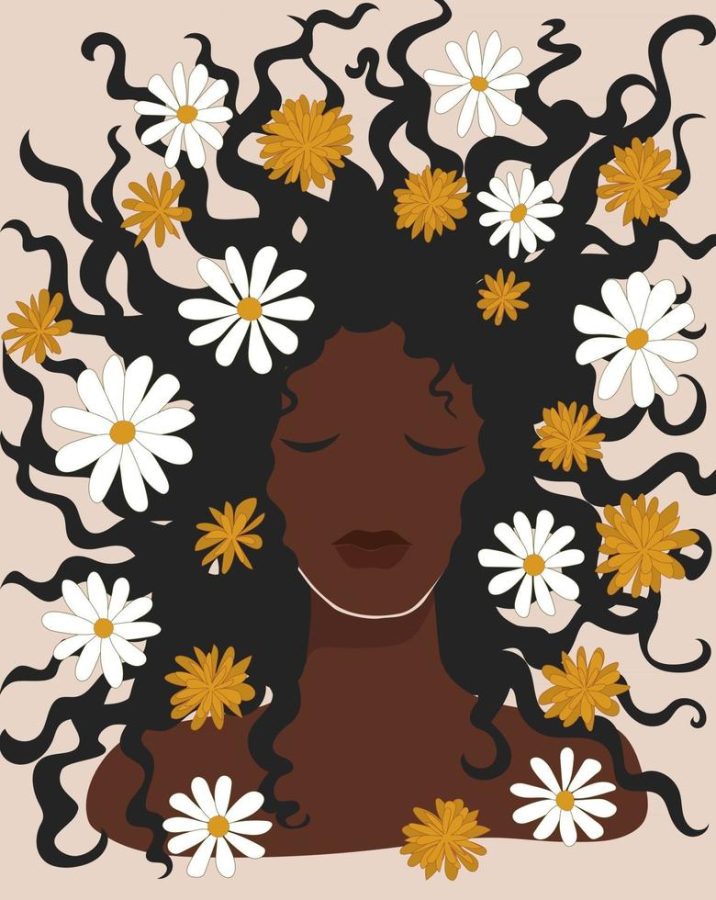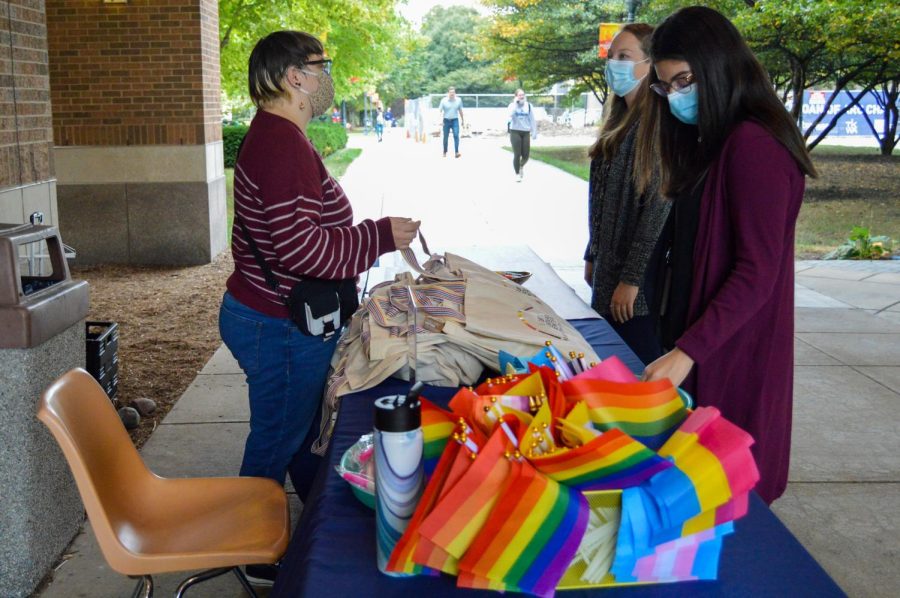An ornate Celtic cross on top of a dazzling emerald armband. A cryptic black and white crest around an ominous white eye. A light spectrum arranged in a waveform to show all of the colors of the rainbow.
To some, these may seem like random images, but to Chris Stockdale, associate professor in the department of physics, these pictures are more than just skin-deep. To Stockdale, these pictures – his tattoos – represent his identity. “One of the tattoos I have on my arm is from a character in a graphic novel called ‘Starman.’ The character got tattoos at some point in his life to signify certain meanings. That’s where the idea came from [for me],” Stockdale says. “Sort of making a statement to yourself and others about where you’re at in your life.”
Over the last 22 years, Stockdale has acquired 12 or 13 tattoos – he couldn’t recall which – all symbolizing a different event or important aspect of his life. One of them, a Celtic cross, symbolizes his Irish heritage. Another, an upside-down Texas Longhorns logo, symbolizes the archrival of his alma mater, University of Oklahoma.
The most recent tattoo Stockdale acquired is a pink triangle with barbed wire around it, which he got last summer.
“In recent years, there’s been a lot of people saying mean things about other folks, especially about LGBTQ+ [people]. The [tattoo comes] from the time of the Nazis; if you were gay, they’d put a pink triangle on you,” Stockdale says. “I just wanted to give a little bit of heritage with that design by adding barbed wire around the edges of it. A ‘Let’s not do this again,’ kind of thing.”
As unique as his tattoo is, Stockdale isn’t the only Marquette faculty member who uses tattoos as a means of describing his experiences. Jennifer Henery, teaching assistant professor in the department of theology, says her tattoo, a pansy on top of a cross along her Achilles tendon, is “very small, very faded and very meaningful.”
The inspiration for Henery’s tattoo was her experience of coming to terms with her life path as she got older.
“When I was a senior in college, I had the first of my midlife crises,” Henery says. “Everybody had always said, ‘What do you want to do when you grow up?’ My senior year of college, I had this epiphany that I wanted to be asking different questions. I dropped out of the academic programs I was in, cut my hair short and got a mountain bike and a tattoo. Most of my friends thought I had lost my mind.”
Instead of her previous major, Henery began taking philosophy and theology courses to help her answer the question of who she wanted to be. Henery says she got her tattoo as a symbol of her relationship with God and her devotion to her faith.
“In the space I was in, I wanted to get a tattoo of the cross, the physical reminder of being marked as Christ’s own, forever,” Henery says. “On top of that, there’s a legend of the pansy, that the pansies were the flowers around the foot of the cross. If you look at pansies, they’re all different colors and looking upwards and have a human-like face, so the idea is that they’re the flowers that Christ’s blood dripped on.”
Similar to the cross and pansy, Henery chose to get her tattoo on her ankle due to the myth of Achilles, and how when he was dipped in the River Styx to make him immortal, the one place that could kill him was where he was held by his ankle.
“I had it placed there because it was the one thing I was willing to die for,” Henery says. “Everything I got is intentionally symbolic and connected to my faith journey.”
Faith and remembrance is a shared theme between Henery and Joshea Davis-Joiner, a junior in the College of Nursing. Davis-Joiner has seven tattoos, all of which symbolize a part of her life so far. One of them, the first tattoo she got and a memorial for her brother, Joshua, is featured on her arm.
“It’s just our names with a heart,” Davis-Joiner says. “I wanted a place that wasn’t going to hurt that bad, which is why I picked [my arm]. It’s a reminder of why I do what I do and I see it all the time [when] I write.”
In addition to her memorial for her brother, Davis-Joiner says her other tattoos show aspects of her as well. Her senior quote, “You do not just wake up and become a butterfly. Growth is a process,” is tattooed along her spine as a way to remember how much has changed in the past few years.
“My senior year was kind of a lot with COVID-19. To pick a quote that resonated with that period and how we’re still living currently in a pandemic just reminds me where I was and how far I’ve come,” Davis-Joiner says. “I don’t just go to college and it all happens – growth is a process, you never stop growing. I think that transition from being a teenager to an adult is something that really stuck with me.”
In terms of getting more tattoos in the future, Davis-Joiner says she would be willing to, just so long as she has a reason for it.
“When I become a mother, I want to tattoo my children’s names and initials,” Davis-Joiner says. “When I get married, obviously I can’t wear my ring everywhere because I’m a nurse, so I want my husband’s initials tattooed on my finger. I also want a leg tattoo, but I’m not sure where.”
While Davis-Joiner is interested in acquiring more tattoos in the future, Henery says she will likely hold off recoloring her tattoo or getting a new one for now.
“My 18-year-old self at the time really needed this outward, visible sign of this transition in my life,” Henery says. “Nowadays, not so much.”
Regardless of whether or not he gets more tattoos any time soon, Stockdale says he is happy to be able to express himself despite what other people – and the university – think.
“I happen to be in a job where I can be a little more expressive. Some of my tattoos I got literally to represent identity on a campus where identity can be difficult. I’m in a position where if I have a tattoo showing I might get a weird look, but I don’t feel as threatened,” Stockdale says. “In that instance, well, if someone is offended, that’s who I am and I’m not hiding it.”
This story was written by Will Eikenbary. They can be reached at will.eikenbary@marquette.edu.

